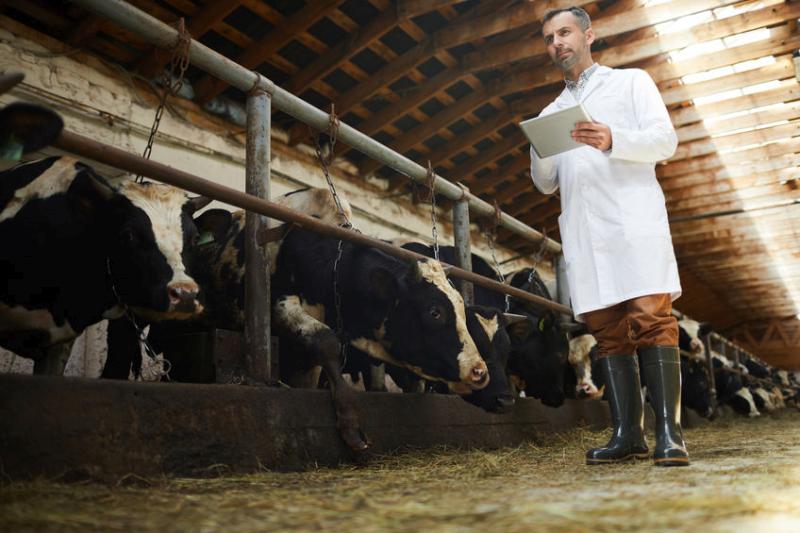
Livestock vets have applauded the government's decision to reinstate their jobs to the Shortage Occupation List as the UK prepares to leave the EU.
The Home Office has approved the Migration Advisory Committee’s (MAC) recommendation for vets to be reinstated on the Shortage Occupation List.
The necessary amendments will be made in the Autumn Immigration Rules changes.
The UK veterinary sector applauded the move as a “huge win for animal welfare and a resounding vote of confidence in the veterinary community”.
Reinstating would address concerns about capacity, meeting future demand and making it easier to recruit into the profession once the UK leaves the EU.
The British Veterinary Association (BVA), which represents over 18,000 veterinary professionals, had been running a major campaign for vets to be restored after being removed from it in 2011, to help 'safeguard against a future crisis in workforce capacity'.
In its submission to the MAC committee, produced jointly with the Royal College of Veterinary Surgeons (RCVS), it highlighted the high proportion of EU vets working in the UK.
It raised concerns that an already stretched veterinary workforce could struggle to cope with increased demand for some services after Brexit.
The call was supported by Defra, who made their own submission to the committee on behalf of vets.
Around 95 per cent of the vets carrying out critical public health work and animal welfare monitoring in abattoirs hail from overseas, predominantly the EU.
BVA has also raised concerns that demand for veterinary certification and health testing services could increase dramatically in the event of a no-deal Brexit, placing significant pressures on the workforce.
Simon Doherty, BVA President, said: “Working with our members and stakeholders, including the RCVS and colleagues at Defra, BVA ran a concerted campaign to restore vets to the list, raising concerns over our already stretched profession’s capacity to meet future demand.
“This decisive move by the government will make it easier to recruit into the profession and we now look forward to working with the new Defra Secretary of State Theresa Villiers to ensure we have a flexible, skilled and robust veterinary workforce that meets the UK’s needs for both the immediate future and in the longer term.”
He added: “Alongside this welcome boost, the profession itself will continue to undertake work to understand and address recruitment and retention challenges both now and into the future.”
It follows the NFU criticising the MAC for excluding agriculture from its list of jobs in short supply.
Recommendations from MAC exclude agriculture from its list of jobs that need to be filled by non-UK workers post-Brexit.
During the consultation, the NFU provided a range of critical jobs that many non-UK workers perform on farms at all skill levels roles such as dairy herdsmen and poultry technicians.
But NFU President Minette Batters said she is 'staggered' that farming has been 'ignored', and that the MAC has 'failed to recognise the needs of the industry'.
